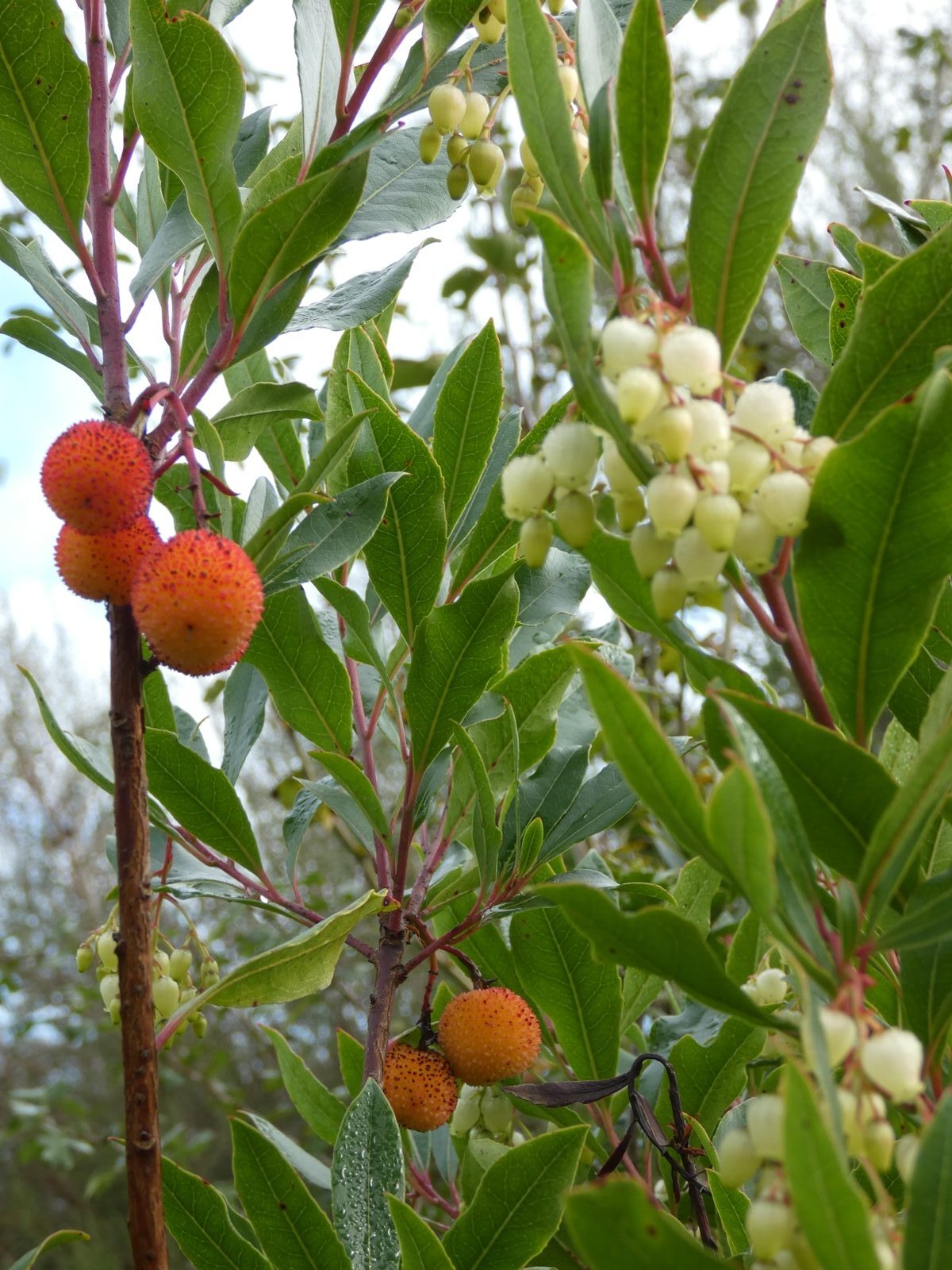Arbutus unedo
Strawberry tree
Species Tolerances
- Drought Tolerance: High
- Shade Tolerance: No
- Waterlogging Tolerance: Low
- Frost Tolerance (trees from warmer climates may be frost tolerant, but their flowers may not be): Yes
- RHS Hardiness: H5
- Optimum Conditions for Growth:
A small evergreen tree or strongly branched bush. A stress-tolerant pioneer that will grow on cliffs, rocky places and the edges of woodland, tolerating salt spray and gales. But cannot tolerate waterlogging and seedlings are very susceptible to shading and frost. Fire resistant. After fire or wind-blown damage, it will throw out natural coppice or root from fallen stems. No strong dependence on either acid or alkaline soil pH, but will tolerate very acid soils. - Susceptibility to Pest/Disease:
At risk from Phytophthora ramorum.

Arbutus-unedo-by-Bee-Happy-Plants-&-Seeds
Service to Pollinators
- Summary of Service to Pollinators:
A source of nectar and pollen in late autumn for bumblebee queens and honeybees. Milder winters will increase its importance e.g. Buff-tailed bumble bee colonies are having a second generation which will then require more of this type of plant. - Nectar Value to Pollinators: 1 (of 0-3)
- Honeydew Value to Pollinators: 0 (of 0-3)
- Pollen Value to Bees: 1 (of 0-3)
- Flowering Period: October-Nov
Risks
- Human Toxicity: Non-toxic
- Livestock Toxicity: Non-toxic
- Invasive Risk: No
- Suckering: No
Products
- Edible Fruit: Yes
- Edible Leaves: Yes
- Edible Sap: No
- Edible Seeds: Yes
- Honey, major source in UK: No
- For any medicinal potential, see 'Further Details' below.
- Timber: No
- Livestock Fodder: Yes
- Other Products:
Will produce honey in the future with the warmer climate. The leaves contain ethyl gallate which has potential for alternative medicine. Will also coppice after fire, and has been used for charcoal.
Utility
- Nitrogen Fixation: No
- Organic Matter Accumulation: Yes
- Phytoremediation: No
- Deacidification: Insufficient Data
- Windbreak: No
- Soil Erosion Control: No
- Shade or Shelter: Yes
- Plant Support: Insufficient Data
- Integrated Pest Management: Insufficient Data
- Wildlife Value: Yes
- Wildlife Value Summary:
Low biodiversity but fruit are available to a large number of birds and mammals - Graduated Nativeness Classification ⓘ: 1 (of 1-10)1. Historic Native
2. Historic Introduction
9. Neutral Introduction
Further Details
Good for interplanting, medium size. Can provide unifloral honey, increasing honey production as the climate warms. The leaves contain ethyl gallate which has antibiotic properties, potential for alternative medicine. A. unedo’s natural distribution is restricted to the South West of Ireland. A pioneer tree often later crowded out by larger trees. The only native tree to have fruits and flowers formed on the tree at the same time in October-November. Elsewhere in Europe it grows in the Mediterranean.